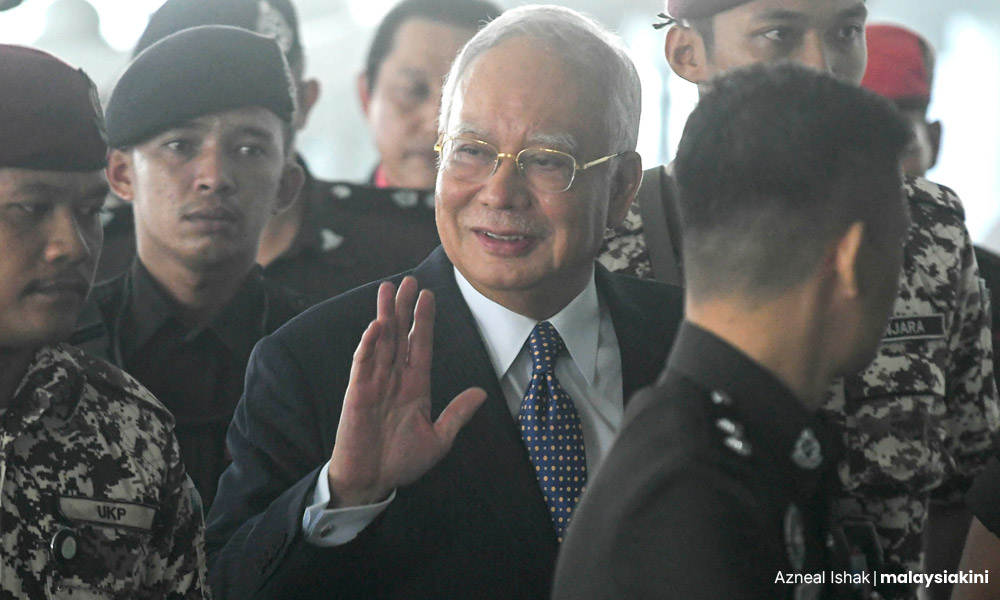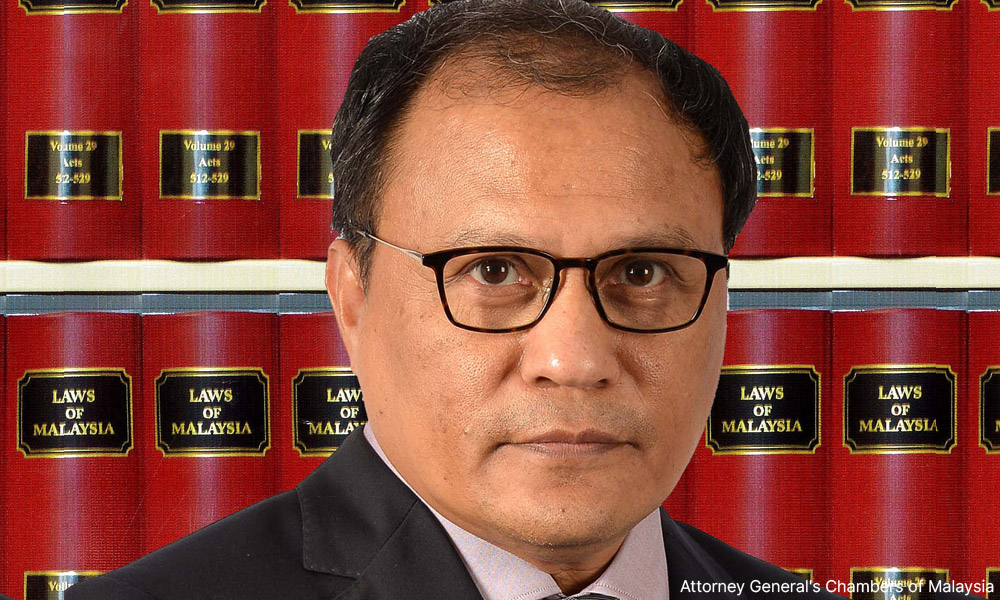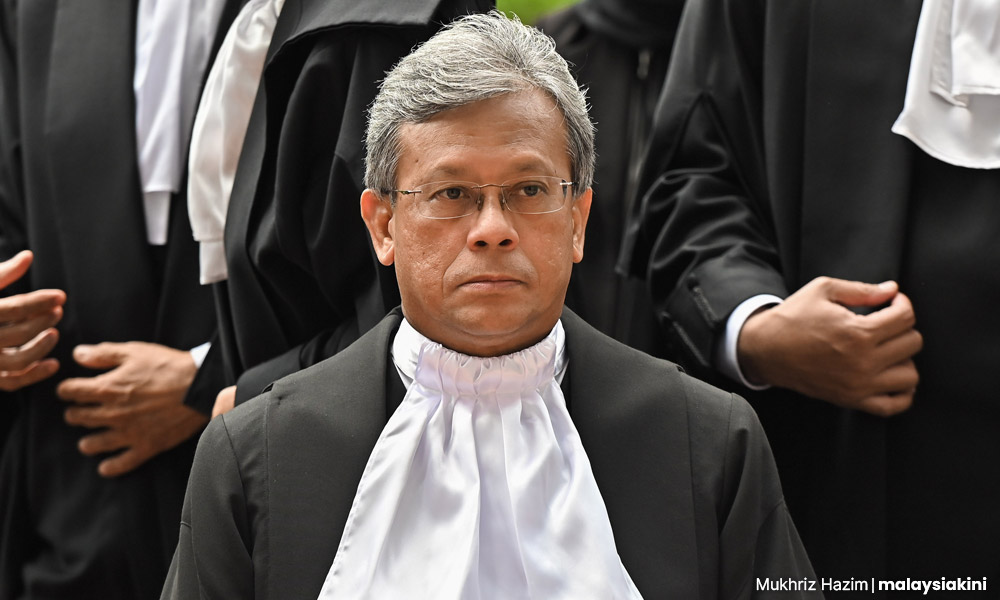The credibility of Prime Minister Anwar Ibrahim’s vow to battle corruption in Malaysia crumbled to dust when deputy public prosecutor Mohd Dusuki Mokhtar asked for and got a discharge not amounting to an acquittal (DNAA) for 47 corruption and other charges against Anwar’s deputy, Ahmad Zahid Hamidi.
Not only is this an irretrievable and irreversible setback to Anwar’s nascent but loud plan to crush corruption, it raises questions as to whether multiple charges against former prime minister Najib Abdul Razak may be similarly withdrawn by the prosecution on the same basis of selective prosecution.
Najib, who is in jail following successful prosecution of other charges related to 1MDB, has repeatedly called for charges against him to be withdrawn, alleging political persecution.
Zahid supports him in such calls and is also among those who have called for Najib’s pardon. He also alleges political persecution in his own case.
The latest development comes just days after a case involving Najib and former 1MDB CEO Arul Kanda Kandasamy.
Najib’s defence said the prosecution’s appeal in the 1MDB audit case against the former prime minister was defective because the appeal was never filed.

This raises questions over why the prosecution did not file an appeal in the dismissal of the audit-tampering charges against Najib and Arul Kanda within the stipulated period, a move which is routine as explained in this column by R Nadeswaran.
The latest episode is a surprising and unprecedented turn of events because the trial judge had found that a prima facie (answerable) case had been established with respect to the 47 charges that Zahid had been charged with.
The trial had been running on this basis with the defence having been called already, since January last year - more than one and half years ago.
Zahid faced 12 charges for criminal breach of trust (CBT) under Section 409 of the Penal Code; eight charges under Section 16(a)(B) of the MACC Act 2009; and 27 charges under Section 4(1)(a) of the Anti-Money Laundering, Anti-Terrorism Financing and Proceeds of Unlawful Activities Act 2001.
Judge Collin Lawrence Sequerah made the discharge ruling earlier today after allowing the DPP’s application for the DNAA of Zahid.
The prosecution decided to halt proceedings as they wanted to investigate “the case more in-depth” and investigate if there was selective prosecution.
According to a Bernama report, Dusuki told the High Court that Zahid had raised a very serious issue in his letters of representation, namely regarding the allegation that he was a victim of selective prosecution by the previous government.

That’s rather strange and unexplainable as Zahid’s defence had on Dec 8 last year and Jan 25 this year, sent letters of representation to Attorney-General Idrus Harun to seek a review of the graft case.
That means the AGC had eight to nine months to investigate, more than enough time.
On Aug 24, just 11 days before the latest hearing, Zahid’s lawyers had urged the AG to decide on the deputy prime minister’s bid for a review over this ongoing corruption trial.
Now the prosecution has asked for a DNAA. Why has it given in so easily when the trial judge said there was an answerable case? And how much more time does it need to investigate?
Is the DPP (and the AG) tacitly implying that the AGC has failed in its duty of timely investigation of a case that ranks among the gravest in terms of public importance?
Shouldn't they and others as serving officers then take responsibility for this debacle?
Shockingly, the DPP was reported to have further said: "We also believe that this honourable court is aware of the cabinet's announcement to establish a royal commission of inquiry (RCI) to investigate the issues raised in the memoir written by former attorney general, Tommy Thomas and the disclosures made by him regarding charges made against certain individuals.
“In fact, it is actually in line with the purpose of the RCI which, among other things, (is) aimed at investigating allegations regarding the violation of professional responsibility by the highest office holders in the country."
Prosecution speaking for defence?
This is a case where the prosecution seems to be actually, surprisingly and eloquently speaking on behalf of the defence when its duty is to prosecute based on facts without fear or favour and not to make a judgment over whether the decision to prosecute was selective or not.
The only question is whether the person concerned is guilty as charged or not.
Sequerah seemed unhappy with the events. He took pains to point out that the AG had absolute discretion to prosecute or withdraw prosecution at any time before judgment under Article 145 (3) of the Federal Constitution and Section 254 of the Criminal Procedure Code.
Thus, the DNAA is because the prosecution asked for it, not because the court granted it, putting paid to Home Minister Saifuddin Nasution Ismail’s assertion that it was a court decision.
Let me repeat that differently - the prosecution asked for the DNAA and because they have the right to withdraw charges under the Federal Constitution, the court had no choice but to accede.
It was therefore not a court decision; it was a decision of the AGC which was fully aware of how the judge had to decide.

Sequereh added: “Should the prosecution decide in the near future that they will not proceed any further with the charges, much precious judicial time would have been wasted and a great amount of taxpayers' money will also have been wasted, With that, this court stands adjourned.”
That this comes on the heels of the announcement of a new attorney-general, Ahmad Terrirudin Mohd Salleh, coming in on Sept 6 is a cause of great concern.
Although Ahmad Terrirudin’s appointment was to take soon, as the sitting solicitor-general, he is the most senior person in the AGC and therefore, has to take responsibility for the decision.
Idrus was reportedly on leave prior to retirement on Sept 6.
The situation here is dire. It smacks of connivance or incompetence or both and unless something is done quickly we may have reached the point of no return in our failure to fight corruption and stop the interference of the executive in judicial matters.
The question for Anwar to ask is whether this AGC, headed by the current AG, is the right one to be among the frontliners in the declared war against corruption in the country.
He, as the PM, recommends the appointment of the AG. The answer is clearly a resounding “no” in the light of two rather questionable decisions in matters of great public interest in a matter of days.
One involved a former prime minister who was accused of fiddling with 1MDB’s accounts together with its CEO (1MDB lost tens of billions of ringgit) and the other a sitting deputy prime minister facing corruption and other charges - who was known at one time to be a political buddy of Anwar.
If Anwar, on the other hand, thinks that some level of corruption is the price to be paid for stability and the continuance of this government, then he must not speak against corruption anymore and forever remain silent on this topic.
Let me quote what he said: “I don’t mind being severely criticised for trying to put a stop to these practices. If I allow this (corruption), how can our country ever develop?
“I am determined to end corruption,” said Anwar.
Let the prime minister answer his own question. Or has he also abandoned his quest for development as well? - Mkini
P Gunasegaram says when corruption is excused once, it can be excused always.
The views expressed here are those of the author/contributor and do not necessarily represent the views of MMKtT.




No comments:
Post a Comment
Note: Only a member of this blog may post a comment.